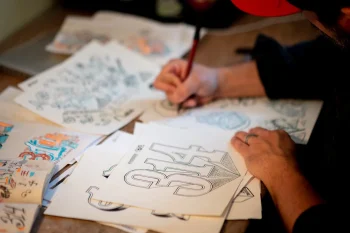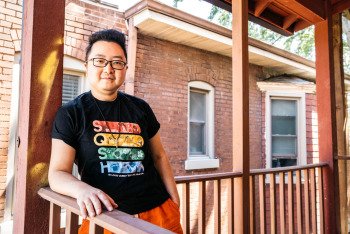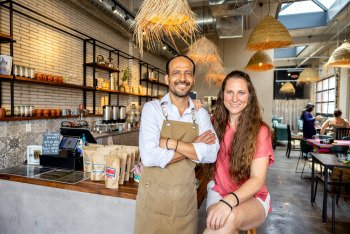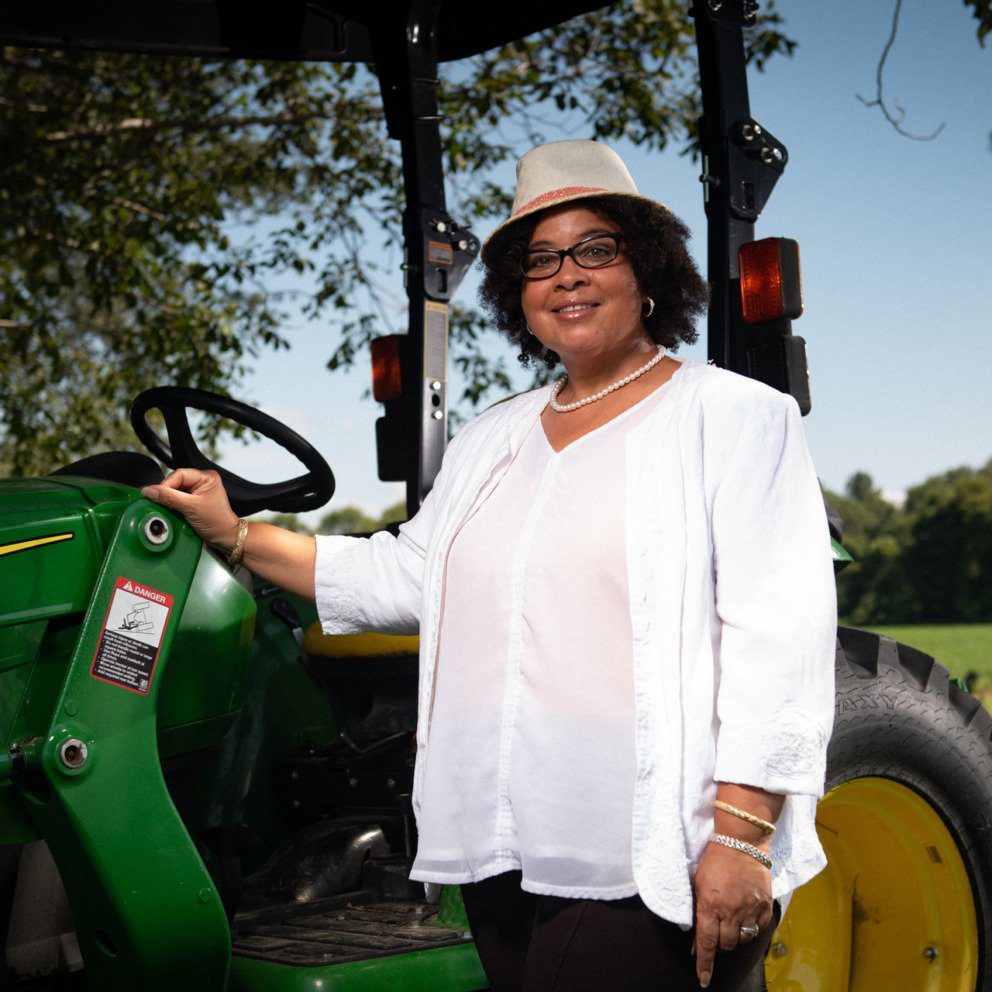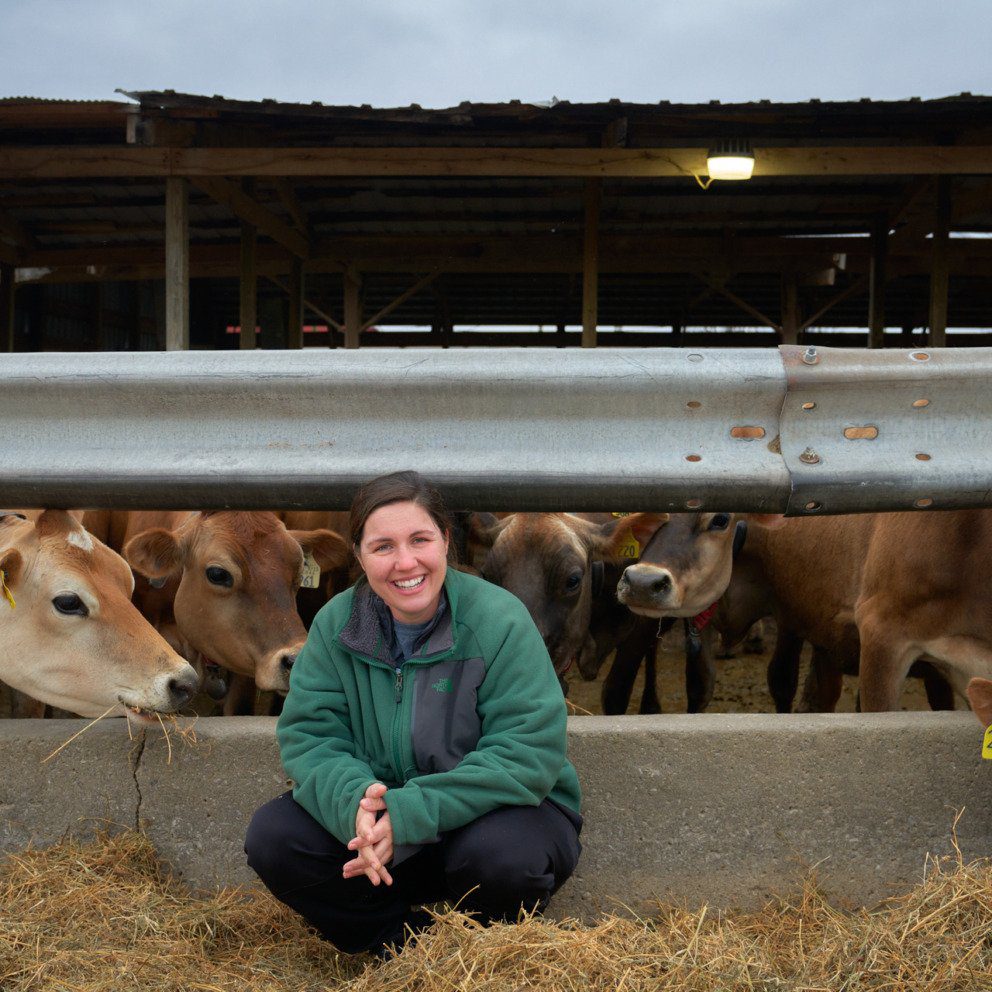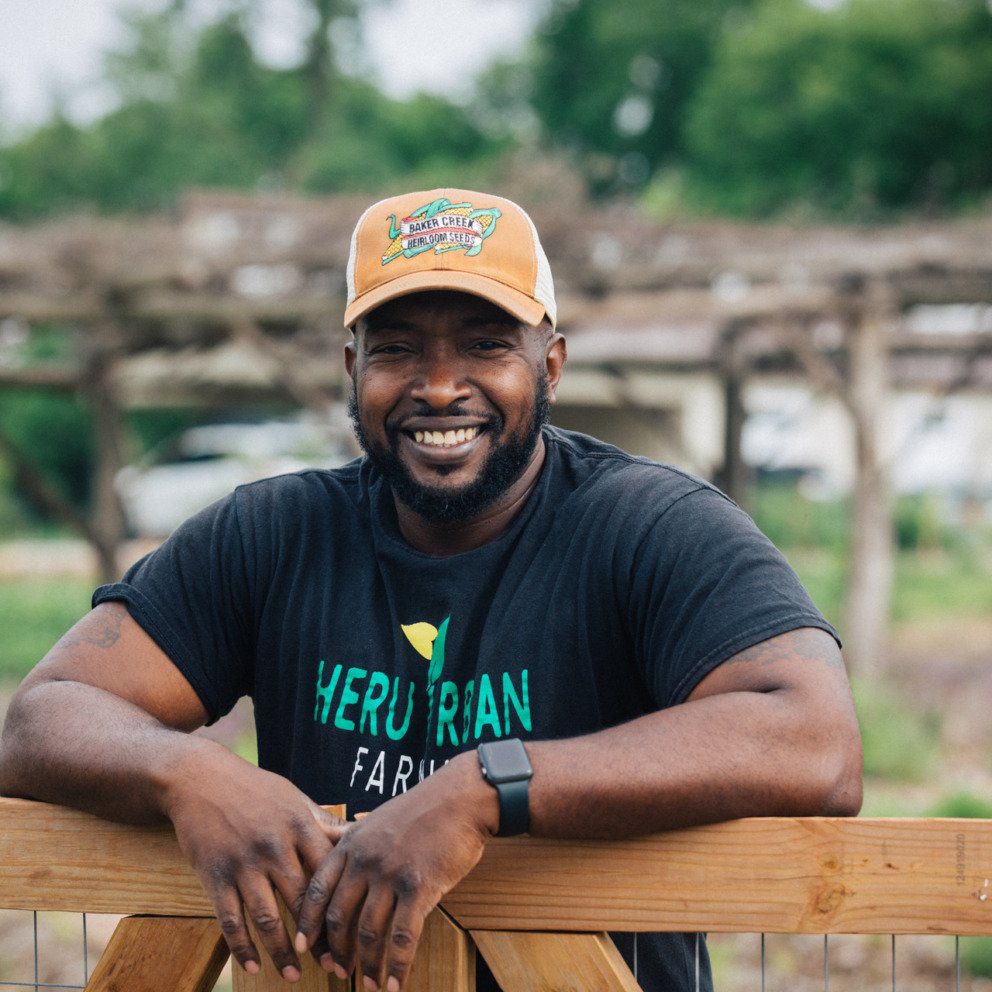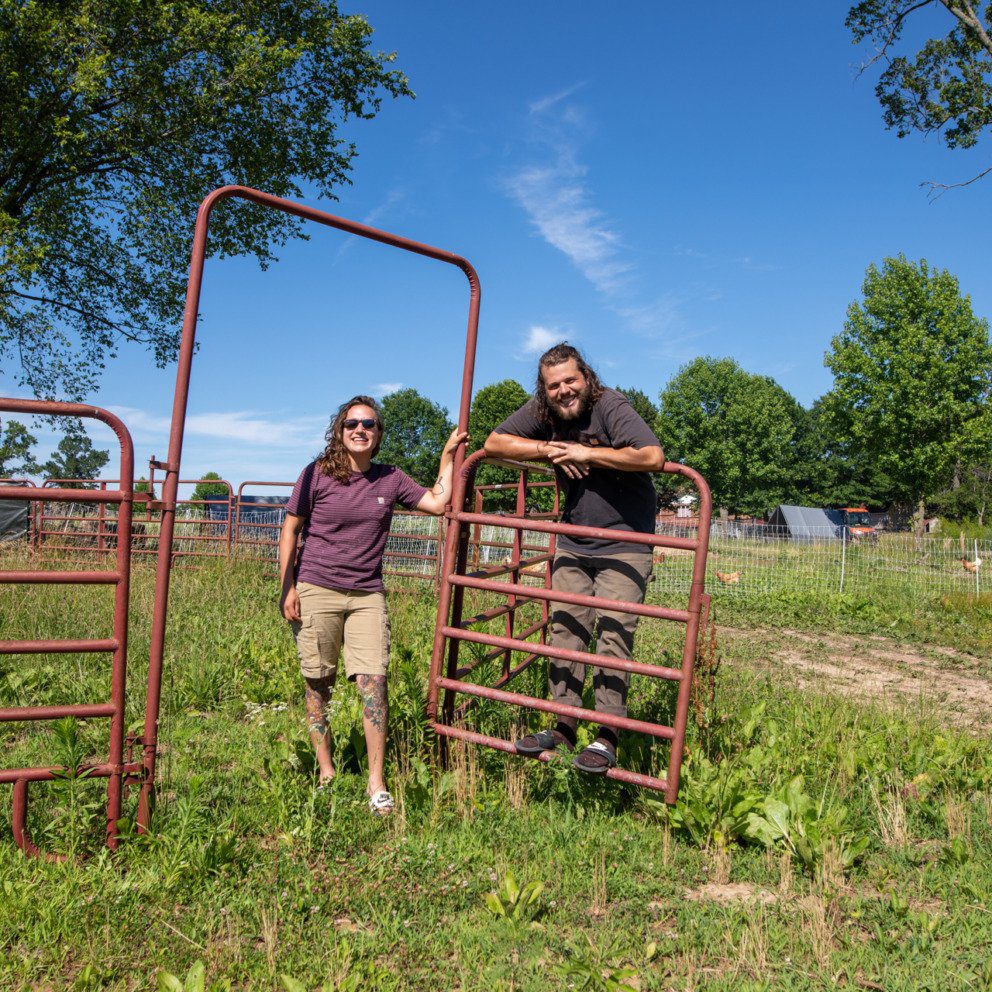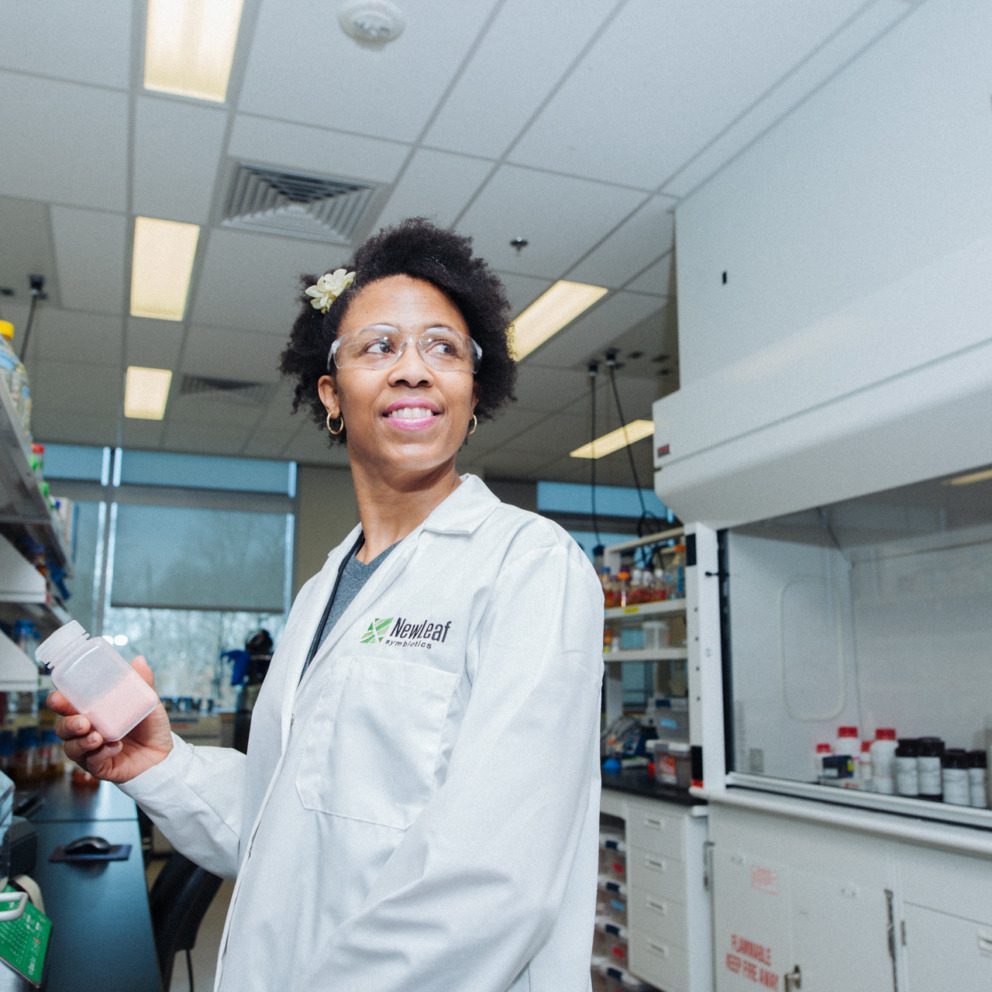The Future of Farming
Creve Coeur-based Climate LLC is helping transform the possibilities, profits and precision of farming in the digital age.
A fourth-generation farmer and independent agriculture retailer based in West Alton, Mo., Adam Bonderer is always experimenting with new fertilizers, herbicides, fungicides and other products to share with his clients. In the past, this work would have entailed lengthy tractor drives across broad swaths of land, manually recording observations in a notebook, or more recently, pulling thumb drives out of various machines and loading the data into Excel spreadsheets.
Now Bonderer’s farm statistics are all in one place, thanks to a piece of hardware the size of a hockey puck and a set of apps on his iPhone – a technology known collectively as FieldView. When plugged into his tractor or combine sprayer, the FieldView drive can crunch agronomically relevant data, such as seeding rates and total production at harvest, and promptly send this information to Bonderer’s electronic devices.
The abundance and accessibility of information made possible by this new tool “have put money in my pocket,” Bonderer says. For example, he recently used the technology to map and record tests of three different fungicides on three strips of corn, and he observed a 60-bushel increase in output by the lesser-known brand. It used to take him three or four years to make this kind of determination, he says. This “side-by-side” experiment illustrates FieldView’s primary asset to farmers: the ability to increase return on investment.
“Farmers operate on really thin margins,” says Ben Eberle, senior communications manager of Climate LLC, the company behind FieldView. “Everything they’re investing into their fields costs money, down to the fuel they’re burning and the equipment they’re using. For this reason, farmers have been good at gathering data for years and generations. It’s one of those professions where there are learnings every year. FieldView is just a tool that helps them see in a very precise way what’s needed in their fields.”
FieldView is currently in its seventh growing season, having launched in the United States in 2016 and expanded internationally every year, spreading to Canada and Brazil and then throughout Europe.
It all started in the early 2000s with David Friedberg, a young Google employee. Every day, he drove past a small bicycle rental business on his commute from San Francisco to Silicon Valley. The “Bike Hut” shut down every time it rained, which was often, planting a persistent question in Friedberg’s mind: How do businesses survive when they depend so greatly on the weather?
This simple question led him and his colleague, Siraj Khaliq, to leave Google and co-found the weather insurance company, WeatherBill, in 2005, which was geared toward a broad array of industries at the time, including sports, travel and construction. They quickly realized that agriculture was their biggest market, by far.
Several startup iterations and corporate acquisitions later, WeatherBill evolved into Climate, now a subsidiary of Bayer. Climate provides powerful data science technology to farmers in over 20 countries on more than 180 million acres of land, helping them to maximize profits. (The company also provides free agronomic advice, weather forecasts and other educational information to small-scale farmers in developing countries via an app called FarmRise.)
St. Louis is a key player in the development and implementation of Climate’s digital tools. This is partly due to the city’s location, “within a 500-mile radius of more than half of all U.S. agriculture production, including 80% of the nation’s corn and soybeans,” as stated in the St. Louis Business Journal. Moreover, St. Louis is a national hub for agriculture technology innovation with assets like the 39 North innovation district and the Danforth Plant Science Center, not to mention Climate’s parent company, Bayer Crop Science.
Climate’s St. Louis office, located at CityPlace near the intersection of Olive and I-270, was established in 2014 and employs roughly 200 people, an eclectic mix of software engineers, marketing and sales professionals, agronomic scientists and more. Jeremy Williams, the current head of Climate and of Digital Farming for the Crop Science division of Bayer, earned his PhD in molecular biophysics from Washington University in St. Louis and began his career as one of the founding scientists at Divergence Inc., a St. Louis-based biotechnology research and development startup.
“The science, product and engineering teams drive innovation at Climate,” Eberle says. “They include geospatial and imagery scientists, machine learning experts, meteorologists, mathematicians, quantitative researchers and other experts. These teams work together to build intuitive user interfaces on the apps and to deliver predictive models that enable farmers to make data-driven decisions.”
All this expertise bears fruit out in the field amid the corn and the soybeans, once farmers like Bonderer take the helm. And the farmers aren’t just using the information from their fields, but connecting and making use of the app’s data-sharing capacities. For Bonderer, seeing how shared products are performing in other fields and exchanging tips and recommendations with his neighbors is a definitive advantage. What’s more, it unites the community, he says. “Sometimes farmers don’t get along, so anything that can bring you together is good,” he says.
FieldView is also starting to play an interesting role in engaging farmers with broader sustainability efforts, Eberle says. For example, farmers can use the app to participate in carbon markets, whereby they receive compensation for helping to reduce greenhouse gas emissions. They record their sustainable farming practices in the main app, which then generates a numerical value for how much carbon they are putting back into the soil and renders them eligible for additional revenue.
Bonderer, who recently started growing industrial hemp, hopes the new crop may help him earn some of these carbon credits. (Used to make textiles, biodegradable plastic, CBD oil and a variety of other products, industrial hemp became legal to grow in Missouri during the 2020 growing season, having been imported for many years from countries like Canada and China. Bonderer is partnering with a St. Louis-based company called Tiger Fiber in this endeavor, a company that promotes hemp as a “highly sustainable agricultural commodity” whose mission is to “assist in the reintroduction of hemp to American farmers, manufacturers and stakeholders at every level of the industrial supply chain.”)
Bonderer’s ability to track this new crop’s progress via FieldView will hopefully aid his learning curve when it comes to the specifics of growing industrial hemp. Overall, at least, the technology is encouraging experimentation and innovation in the agriculture industry by enhancing farmers’ precision and eliminating much of the guesswork.
“In the past, farmers would plant once a year, and they’d harvest once a year,” Eberle explains. “So they really only had 30 tries at it across a lifetime. Now they have a precise digital record of what worked and what didn’t.
“This opens up all kinds of possibilities.”
Join the Story
Visit climate.com to learn more about FieldView and other available technology.

